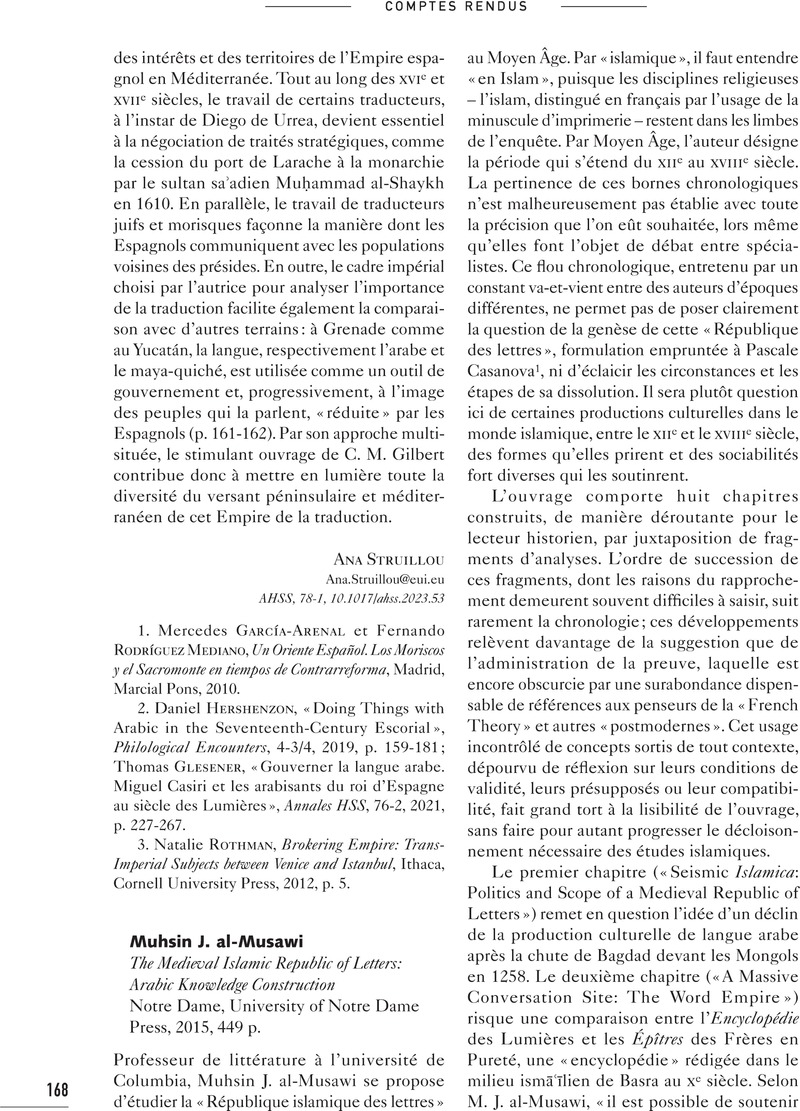No CrossRef data available.
Published online by Cambridge University Press: 01 August 2023

1 Pascale Casanova, La République mondiale des Lettres, Paris, Éd. du Seuil, 1999.
2 Arne A. Ambros, « Beobachtungen zu Aufbau und Funktionen der gereimten klassisch-arabischen Buchtitel », Wiener Zeitschrift für die Kunde des Morgenlandes, 1990, 80, p. 13-57.
3 Voir Peter Gran, Islamic Roots of Capitalism: Egypt, 1760-1840, Austin, University of Texas Press, 1979 et les comptes rendus de Gabriel Baer, Journal of the Economic and Social History of the Orient, 25-2, 1982, p. 217-222 et de Fred De Jong et Peter Gran. « On Peter Gran, Islamic Roots of Capitalism: Egypt, 1760-1840: A Review Article with Author’s Reply », International Journal of Middle East Studies, 14-3, 1982, p. 381-399.
4 Outre Thomas Bauer, Die Kultur der Ambiguität. Eine andere Geschichte des Islams, Berlin, Verlag der Weltreligionen im Insel Verlag, 2011, voir par exemple l’étude du patronage savant mamelouk de Christian Mauder, In the Sultan’s Salon: Learning, Religion, and Rulership at the Mamluk Court of Qāniṣawh al-Ghawrī (r. 1501-1516), Leyde, Brill, 2 vol., 2021 ; l’histoire intellectuelle ottomane de Khaled El-Rouayheb, Islamic Intellectual History in the Seventeenth Century: Scholarly Currents in the Ottoman Empire and the Maghreb, Cambridge, Cambridge University Press, 2015 ; l’histoire de la transmission du hadith à l’époque post-classique de Garrett A. Davidson, Carrying on the Tradition: A Social and Intellectual History of Hadith Transmission across a Thousand Years, Leyde, Brill, 2020 ; ou encore l’histoire de la philosophie et de la théologie, après le xiie siècle, de Frank Griffel, The Formation of Post-Classical Philosophy in Islam, Oxford, Oxford University Press, 2021.